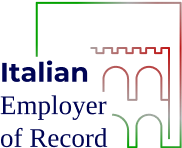26 March 2025
How to manage a remote workforce in Italy: employment laws and HR best practices
Remote work has transformed the global employment landscape; Italy is no exception. Over the past decade, companies have increasingly embraced remote workforce models to attract top talent and adapt to shifting workplace expectations.
While this approach offers flexibility and efficiency, managing remote employees in Italy comes with challenges. Employers must manage a complex web of labour laws, tax obligations, and compliance risks, all while maintaining productivity and engagement.
In this guide, we’ll explore the key legal requirements, HR best practices, and compliance considerations that international businesses need to understand when managing remote teams in Italy.
Legal requirements for managing remote employees in Italy
Employing remote workers in Italy requires compliance with a range of employment laws that are designed to protect both employers and employees. For example, Italian labour law mandates that remote work arrangements—known locally as “lavoro agile” or “smart working”—must be formally agreed upon and documented.
Employers are responsible for ensuring that remote work agreements comply with national and regional regulations, which include stipulations on working hours, breaks, health and safety measures, and data protection.
Employers must also distinguish between employees, freelancers, and digital nomads. Each type of worker is subject to different legal requirements, and misclassification can lead to significant penalties. Companies must ensure that employees hired on a remote basis have the same rights and benefits as on-site staff, including paid leave, social security coverage, and severance entitlements. For freelancers, clear contracts must outline project scope, payment terms, and compliance with Italian tax regulations.
Employment contracts for remote workers
Under Italian law, employment contracts for remote workers must be carefully structured to reflect the terms of remote working arrangements. Employers should include clauses that outline:
- Working hours and availability: Establish clear expectations regarding when remote workers must be available for work, considering Italian regulations on maximum working hours and mandatory rest periods.
- Expense reimbursement: Specify which costs—such as internet, equipment, and home office supplies—the employer will cover.
- Data protection and confidentiality: Include provisions to safeguard sensitive company information and ensure compliance with the General Data Protection Regulation (GDPR).
- Termination terms: Clearly define the notice periods, severance obligations, and grounds for contract termination.
Ensuring these elements are included helps maintain compliance and creates transparency, reducing potential disputes with remote employees.
Payroll, taxation, and social security obligations
Payroll compliance is one of the most critical aspects of managing a remote workforce in Italy. Even when workers are based at home, employers are still responsible for withholding the appropriate income taxes (IRPEF) and making the necessary social security contributions to the Istituto Nazionale della Previdenza Sociale (INPS).
Understanding payroll deadlines and reporting obligations can be complex for companies hiring remote employees in Italy without a local legal entity. Missing tax deadlines or miscalculating contributions can lead to significant fines and audits.
Employers must also consider the implications of cross-border payroll scenarios, especially if foreign companies contract their remote employees. In these cases, partnering with a local payroll provider or Employer of Record (EOR) can ensure compliance with local tax and social security laws.
HR best practices for managing remote teams in Italy
Compliance is only one piece of the puzzle. Successful remote workforce management also requires robust HR policies and practices. Some best practices include:
- Establishing clear communication protocols: Setting up regular virtual check-ins, clear channels for feedback, and transparent performance expectations can help remote employees stay aligned with company goals.
- Promoting work-life balance: Italian labour regulations emphasise worker well-being. Encouraging remote staff to take their mandated breaks and annual leave helps maintain morale and prevent burnout.
- Fostering engagement and inclusion: Building a strong company culture for remote teams can involve virtual team-building activities, professional development opportunities, and inclusive decision-making processes.
- Investing in training and development: Providing access to online learning platforms, mentoring, and skill development ensures that remote employees continue to grow professionally, even when working from home.
How an Employer of Record helps businesses hire and manage a remote workforce in Italy
Learning the complexities of Italian labour laws, tax requirements, and employment contracts can be overwhelming, especially for companies that lack a local legal presence. This is where an Employer of Record can make a significant difference.
An EOR acts as the legal employer on behalf of foreign companies. They handle all aspects of workforce compliance, from drafting legally compliant contracts to ensuring that payroll taxes and social security contributions are calculated correctly.
By partnering with an EOR, businesses can:
- Reduce administrative burdens: The EOR manages all employment paperwork, tax filings, and reporting requirements.
- Ensure compliance with Italian labour laws: From worker classification to statutory benefits, the EOR guarantees that all employment practices meet local regulations.
- Simplify payroll and tax obligations: With an EOR, companies don’t have to worry about missed deadlines, tax miscalculations, or compliance risks.
- Focus on core business activities: By outsourcing the complexities of workforce compliance, businesses can concentrate on growing their operations and achieving strategic goals.
For example, when Erik, the founder of a fast-growing Swedish tech startup, decided to expand operations into Italy, he faced an unexpected challenge: hiring local talent and managing remote developers across multiple countries. Although the Italian market offered great potential, keeping up with local employment laws, tax regulations, and social security contributions for his remote workforce became increasingly complex.
Erik’s company wasn’t equipped to handle payroll and compliance across multiple jurisdictions, and the administrative burden threatened to slow down their international growth. To simplify the process and stay compliant Erik partnered with an Employer of Record. The EOR took care of payroll, tax withholding, and social security contributions for his Italian team members, ensuring full legal compliance. This allowed Erik to focus on scaling his business—without being bogged down by legal complexities—while successfully establishing a presence in the Italian market.
Manage your employees successfully
Managing a remote workforce in Italy requires a deep understanding of the country’s employment laws, payroll obligations, and HR best practices. Businesses can avoid costly penalties and maintain positive relationships with remote employees by ensuring that employment contracts are compliant, taxes are accurately withheld, and social security contributions are correctly calculated.
Partnering with an Employer of Record offers a practical and efficient solution for companies looking to streamline compliance and reduce administrative complexity. An EOR handles remote workforce management’s legal and regulatory aspects, allowing businesses to focus on what they do best—building successful teams and driving their operations forward. Contact us today to learn how we can help ensure compliance and streamline your remote workforce management in Italy.



